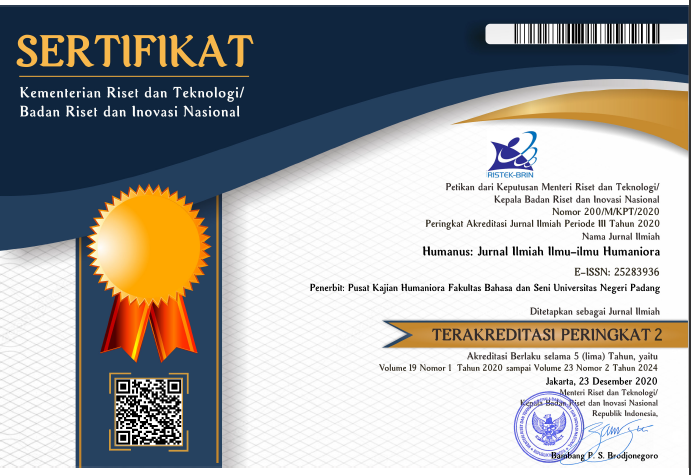Gerakan Sosial Pedagang Kaki Lima (Studi Tentang Hegemoni pada Pedagang Kaki Lima Di Pasar Bambu Kuning Kota Bandar Lampung)
 ), Bartoven Vivit Nurdin(2), Bintang Wirawan(3),
), Bartoven Vivit Nurdin(2), Bintang Wirawan(3), (1)
(2)
(3)
 Corresponding Author
Corresponding Author
Copyright (c) 2016 Humanus
DOI : https://doi.org/10.24036/jh.v10i1.485
Full Text:
 Language : en
Language : en
Abstract
This article is based on a research aiming to study the street vendors’ social movement in the city of Bandar Lampung, particularly in Bambu Kuning market, by using the Marxist conflict perspective. The Bandar Lampung municipal policy to sweep the street vendors has caused them to resist. This research is qualitative, using observation technique, participative observation, in-depth interviews, and library research for data collecting. There are five important discoveries in the research; 1) street vendors movement, in Marxist conflict perspective, is a resistant act both openly and closely or latent. 2) Sweeps by Bandar Lampung municipality, which is based on public agreement on certain values such as bylaws Perda No 8 Tahun 2000 which aims at the street vendors, is a form of hegemony. 3) Movement by the street vendors, both openly and latently, which is perceived as a resistance in this research, is a counter hegemony. 4) Hegemony, resistance, negotiation, and compromise are indispensable things in a conflict between the ruling class and the subject class. 5) In Bambu Kuning market, there are people who control the street vendors as well as subordinated by the Bandar Lampung municipality. They are the market thugs usually called preman. Their position in the Bambu Kuning case is in “grey area” or not clear; representing none of both the street vendors and the municipality.
Key words: social movement, street vendors, hegemony, resistance
 Article Metrics
Article Metrics
 Abstract Views : 1217 times
Abstract Views : 1217 times
 PDF Downloaded : 505 times
PDF Downloaded : 505 times
Refbacks
- There are currently no refbacks.
Copyright (c) 2016 Humanus










